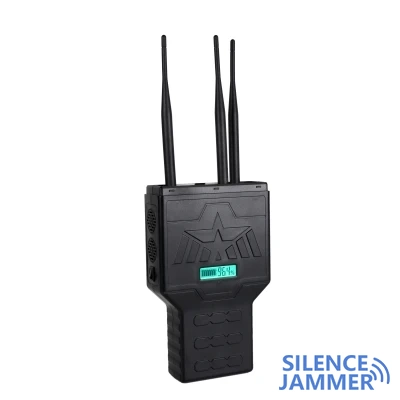In recent years, the Indian Army has made significant progress in countering drone threats from Pakistan. As terrorist groups increasingly use drones to deliver weapons, drugs and explosives to India, India has to step up its response to ensure national security.cell phone jammer In 2023, the Indian military tested and deployed domestic anti-drone jammers and deception systems in the Jammu and Punjab regions, and achieved satisfactory results, effectively curbing cross-border smuggling by terrorist organizations through drones. signal jammer
Technical breakthroughs and deployment of anti-drone systems
According to Indian media reports, the Indian Army and intelligence agencies have recently tested a number of new domestic anti-drone systems in border areas. GPS jammer These systems include jammers and deception devices designed to intercept drones used by terrorist groups. In trials in Jammu and Punjab, these systems successfully stopped multiple drones trying to cross the border, ensuring security in border areas. Wifi jammer It is understood that these drones usually come from Pakistan and are mostly made in China, carrying drugs, explosives and even arms.drone jammer
The anti-drone system deployed by India mainly relies on two technical means for defense: one is to use a jammer to cut off the communication link between the drone and the operator, causing it to lose control and crash; the other is to use a deception system to disrupt the drone GPS navigation, forcing it to lose its direction or land outside its intended target. The system has an effective range of up to 10 kilometers and can operate around the clock. Through this combination of technologies, India has successfully resolved multiple drone cross-border threats.
The Rapid Growth of Drone Threats and Countermeasures
Drone activity in the India-Pakistan border areas has increased significantly in recent years. According to statistics, in the past year alone, the Indian military discovered about 300 drone sorties in areas such as Rajasthan, Punjab and Jammu, and this figure has almost tripled compared with 2021. Not only do these drones carry weapons and explosives, they are also often used to smuggle drugs. In particular, heroin and cocaine produced in the Afghanistan-Pakistan region are transported to India through drones, further exacerbating the local drug problem.
Terrorist groups in Pakistan continue to adjust their tactics, using drones to deliver arms and explosives in sensitive areas such as Jammu and Kashmir, while trying to incite separatist sentiment in the Punjab region. In response to such threats, the Indian military plans to further expand the deployment of anti-drone systems and introduce armed drones so that it can not only carry out defense, but also have the ability to launch retaliatory strikes when necessary.









